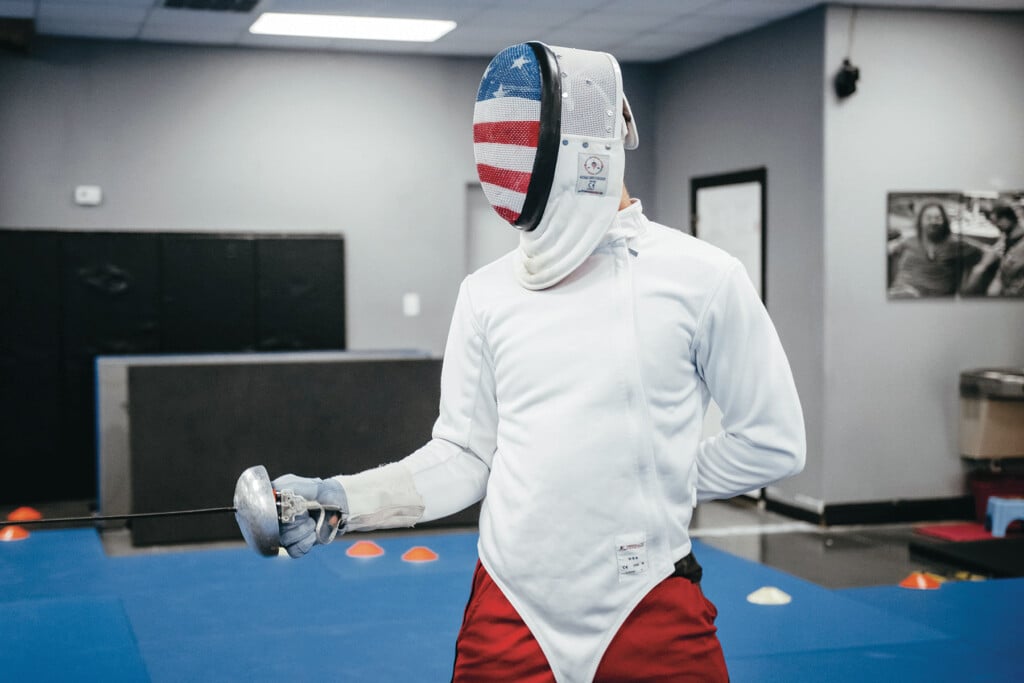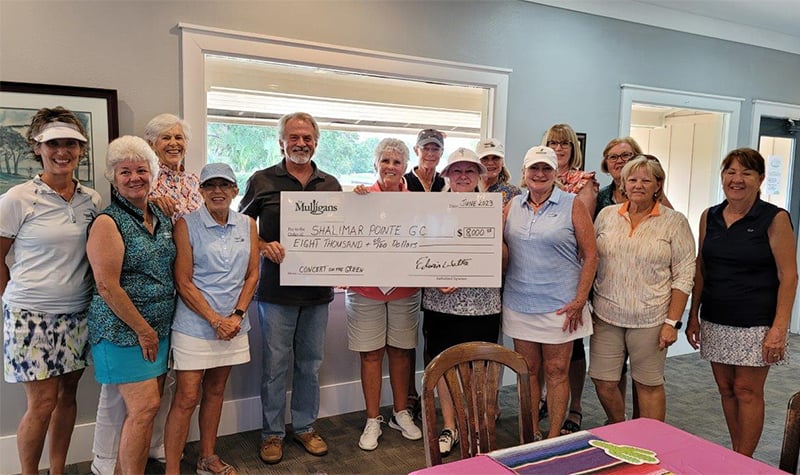Soccer Synergies
The world’s most popular sport takes precedence in the Panhandle

Soccer is widely recognized as the world’s most popular sport. Even in the U.S., where the NFL dominates viewership, more than 14 million Americans participated in organized soccer in 2023, according to Statista, about twice as many as tackle and flag football.
Amid surging interests, Pensacola has become a hub for the sport.
“Soccer is an accessible sport for anyone; all that you really need is a ball,” says Marcus Bishop, assistant director of competition for the Southeastern Conference (SEC). “You don’t technically need a goal. You could go to a brick wall and draw a goal with some chalk, but you can grow your skills just with the ball.”
John Guidroz, founder of Coastal Rush, the largest youth soccer umbrella organization in the Panhandle, says that with greats like Inter Miami’s Lionel Messi at play, more people are drawn to the sport.
“There are more GOATs now, and the kids are aware of it,” Guidroz says. “Like when [David] Beckham went to Los Angeles years ago, you have kids that now look at Messi and go, ‘I want to go outside and kick the ball like him.’”
An estimated 3.5 billion fans flock to stadiums and TV screens to experience soccer, a staggering number compared to that of the NFL’s 410-million-strong global fan base. It’s no surprise then that the SEC Women’s Soccer Tournament is attracting a still-growing crowd at Pensacola’s Ashton Brosnaham Park, where it has been held annually since moving in 2022 from Orange Beach, Alabama.
The energy is palpable at the event.
“It feels like soccer culture,” Guidroz says. “The stadium is packed—they have to bring in extra seats. It’s all your big SEC school names, and the facilities are incredible.”
At the 2024 championship game, University of Texas took the winning title with a 1-0 score. In 2023, Bulldogs player Croix Bethune helped the University of Georgia take the winning title. Bethune went on to Olympic heights, competing on the U.S. Women’s Soccer team in the 2024 Paris games where they bagged a 2-1 win over Australia.
Georgia, Texas, and other SEC stalwarts prove popular among fans in Northwest Florida, but Pensacola Sports president Ray Palmer noted that the real loyalty lies with the conference itself.
“The brand of conference has changed,” Palmer says. “It used to be if you were an Alabama fan, you didn’t care about Auburn or anybody else. But the competition between conferences is such that people will come out to the soccer event just to support the SEC.”

The SEC Women’s Soccer Tournament runs from Sunday to Sunday each year in the early part of November at Ashton Brosnaham Park in Pensacola. Tickets are available through the SEC online ticket office, and the event is televised on the SEC Network. Photo by Jimmy Mitchell / Southeastern Conference
“There is an SEC mentality when it comes to a lot of our fans,” Bishop says. “If you’re a soccer fan in general, you know that if you come to the SEC soccer tournament, you’re going to see some great soccer on the pitch.”
Increased interest in women’s sports has made for an added draw.
Palmer, like many others, points to the Kaitlin Clark effect—what Messi is to soccer, Clark is to women’s sports overall—and he also noted the impact of investments and new resources in women’s sports.
“The training for the girls, the opportunity for them to get quality coaching is better and continues to be better,” says Palmer. “So, the reality is that the product is better. The girls have been given the fair opportunity that we boys had for so long.”
“There is even a lot more interest among general fans,” Bishop says. “They obviously have the support from fans, who are very much women’s soccer fans, but I think now it’s breaking more into the mainstream.”
“There are just so many synergies that are happening for women’s opportunities in women’s sports,” Palmer added.
Justin Witkin’s Pensacola FC 1559 adult teams offer an opportunity for players who age out of Guidroz’s Coastal Rush youth leagues to continue their sport via a semi-professional summer league.
Men’s 1559 teams compete in the National Premier Soccer League (NPSL), a United States Adult Soccer Association Tier 1 league. The women’s 1559 teams previously played in the equivalent Women’s Premier Soccer League (WPSL), in which they competed at the national level two years in a row and won a national title. After the WPSL disbanded Pensacola’s district, the women’s 1559 teams began competing at the regional level in the Gulf Coast Premier League (GCPL).
“It’s an environment that feels very professional,” Guidroz says of the 1559 teams. “Justin and his team have done a great job of bringing that to the backyard of Pensacola.”
Witkin’s goal is to expand opportunity and development in the sport for young athletes and adults alike.
“I always talk about it in terms of bringing to the community an apex soccer opportunity,” Witkin says. “It offers those kids who are excited about taking their soccer to the next level a glimpse of what it can be.”
Gearing up for the 2025 season, which begins in May, Witkin says the men’s team has its sights set on a conference title. In 2024, the men’s 1559 team won their league, but failed to grab the conference championship after a tough defeat in the 2024 playoffs. Witkin anticipates the women’s 1559 team will have a good chance to land the GCPL championship, too.
Witkin’s long-term goal is to attract the United Soccer League (USL) to Northwest Florida. The USL is the largest and fastest growing pre-professional and professional soccer organization in the country and is sanctioned by the U.S.
Soccer Federation.
“It’s not something that’s going to happen overnight, but my goal, my hope, is that as we continue through Pensacola FC to build community support,” he says, “maybe that will give us the momentum to get community forces lined up behind a bigger opportunity somewhere down the road.”
With interest in soccer surging in the Panhandle, that momentum is palpable.
“If you do everything right,” Witkin says, “results follow.”

The 2026 FIFA World Cup will come to the U.S., one of three host countries alongside Mexico and Canada. Coastal Rush’s John Guidroz hopes increased interest will yield increased resources for improvements like new durable turf fields. “We are getting nervous that we don’t have enough fields to support the demand of the amount of kids that are about to come into the sport,” Guidroz says. Pictured above: Justin Witkin (left) and John Guidroz (right). Photo by Matthew Coughlin
Pick Up the Sport
Lifelong soccer player Justin Witkin says the sport is for everyone and can be good for mental and physical health.
“Being active is great for so many reasons, from mental acuity to physical, those aspects are obvious, but sports for me have always been a huge part of socialization,” Witkin says. “As a society, we look for ways to connect with people. Sport bridges that. There’s no politics in sport.”
Too, he says, soccer is a sport you can continue to play throughout your life.
“It offers longevity, and it offers a really broad melting pot way to build community with your fellow citizens.”
Fellow footballer John Guidroz encourages casual players to find a pickup game in their community. Facebook groups for cities and areas throughout the Emerald Coast make it easy to bring a group together for a Saturday game.
“A natural culture of soccer is to play the pickup game—it’s kind of the purest form of the sport,” Guidroz says. “Think of it as backyard basketball or the movie The Sandlot.”
Like Witkin, Guidroz says the social aspect is inherent to the sport and an added benefit for all who play it.
“You can be in the gym with 100 people and never talk to somebody,” he says. “Soccer is a very social sport. Sometimes we’re too isolated in our communities, like we’re around thousands of people but we don’t know anybody. I find soccer to be a great sport to go meet people and to have a common ground to associate with.”



